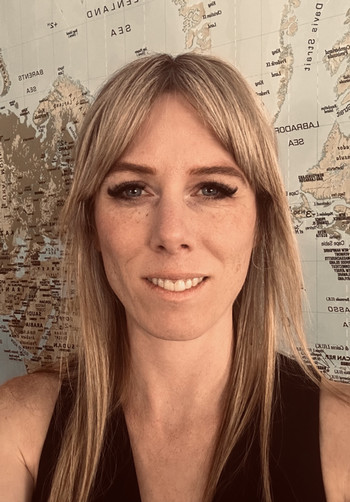SGS Celebrates Graduate Student Winners of Federal Tri-Council Awards - Melissa Erin Keehn
Author: Andrea
Posted on Dec 11, 2024
Category: Student Stories , News and Events

Profile of: Melissa Erin Keehn
Award Received: SSHRC Canada Graduate Scholarship - Doctoral
Awarded for the project: Queer(ing) Joy, Queer(ing) New Brunswick Schooling Futures
Faculty: Education
Supervisors: Dr. Roger Saul and Dr. Casey Burkholder
Why are schools so concerned with the risks of being queer and trans in a transphobic and queerphobic world? My doctoral study—emerging from my experiences as a former teacher in New Brunswick—is a qualitative research project that combines document analysis and participatory visual research to explore how gender and sexuality education in New Brunswick routinely situate queer and trans youth through a lens of perceived risk. These narratives of risk are preoccupied with protecting queer and trans youth from harm rather than challenging cis heteronormative schooling structures.
My study analyzes all documents related to gender and sexuality education published by New Brunswick’s Department of Education and investigates the ways these documents situate queer and trans youth in relation to schooling. I also explore how the former Conservative government’s decision to amend Policy 713 was connected to the broader anti-gender movement sweeping across the globe. Two future participatory visual workshops with 2SLGBTQIA+ youth and teachers will provide important perspectives and narratives to these educational practices and policies.
The case of the former New Brunswick government’s attempt to contain queer and trans childhoods serves as a reminder that the anti-gender movement is a global threat. New Brunswick schools need to provide affirming spaces for young people without diminishing their queer joy and autonomy. What might it look like if queer and trans youth weren’t expected to prove their right to existence in schools? What if youth were given expansive space to explore and dream and be queer and trans without conditions like age limits and capacity assessments? If we (as educators and as advocates) truly want to imagine schools as being spaces where queer and trans students can thrive and experience joy, I challenge the New Brunswick education system to ask itself: What else is possible?
